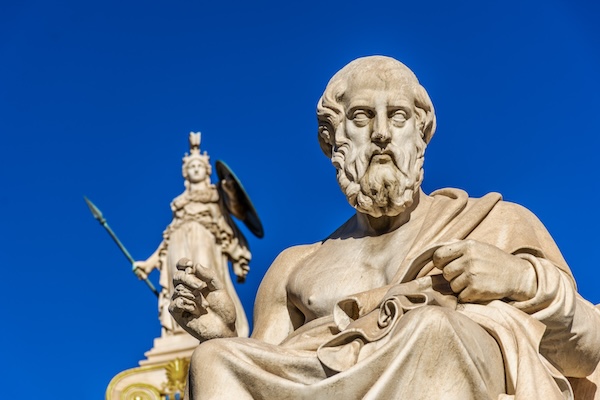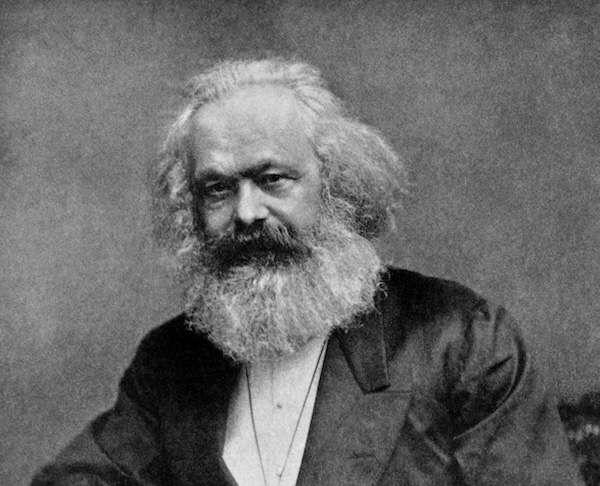Which Philosopher Had the Greatest Beard?

 Joe Nightingale, MBBS, MSc
Joe Nightingale, MBBS, MSc

Forget about the meaning of life. Ignore conversations about good and evil. Let's be real: We really love philosophers for their beards. Much like wizards captivate our fantasy stories, bearded philosophers also scratch a similar itch. Whether it's the scraggly locks of the homeless cynic Diogenes or the majestic beard of an older Plato, beards convey wisdom and authority.
But while debates around their ideas will continue to battle on for generations, we can at least put one matter to rest: Which philosopher had the greatest beard? Read on to find out.
Which Philosopher Had The Greatest Beard?
Socrates (~470-399 BC)

You know you've made it as a philosopher when everyone who came before you is called a "pre-Socratic philosopher." Without Socrates, there is no Western philosophy, no Socratic method, and no unbridled pursuit of goodness and knowledge. Thanks to his student Plato, we have a record of Socrates's teachings.
Socrates is often depicted with a full, unkempt beard, symbolizing wisdom and a life devoted to intellectual pursuits rather than vanity. In some ways, he became the hallmark of a wizened philosopher, obsessed with his ideas and unconcerned with superficial appearances.
It couldn't have helped his defense, however, when the people of Athens accused him of corrupting the youth.
Plato (~428-347 BC)

This spot could go to either Plato or Aristotle – both titans in Western philosophy. But as Plato came first, he earned his spot on the list. We can thank Plato for the idea of perfection existing in another world. His "World of Forms" was instrumental in influencing dozens of subsequent thinkers.
But that wasn't his only addition – he also wrote on political philosophy, ethics, and metaphysics. And he funded the Academy of Athens: the first institution of higher learning in the Western world.
Unlike his teacher, Plato's beard is usually portrayed as neatly trimmed. Compared to someone like Diogenes, Plato represents order and status – the paragon of his philosopher-king. It's little surprise that such orderly, harmonious ideas are found throughout his writings.
Karl Marx (1818-1883 AD)

Karl Marx divides opinion. A German philosopher, economist, and revolutionary socialist, Marx launched withering attacks on Capitalism. He thought workers should unite and overthrow the capitalists who owned the "means of production."
Whatever you think of his ideas, Marx's beard is iconic – thick, bushy, and commanding. It set the tone for several generations of facial hair, from Che Guevera to Vladimir Lenin. While it certainly adds to Marx's revolutionary zeal, the truth behind the beard might be more sloppiness than radicalism.
One Prussian policeman who visited Marx in London in 1850 noted of his room, "Everything dirty and covered with dust, so that to sit down became a hazardous business." Turns out Marx was just a bit of a slob.
Friederich Nietzsche (1844-1900 AD)

Friedrich Nietzsche is considered a towering figure in 19th-century philosophy. His critique of religion, traditional morality, and contemporary culture have proven far ahead of his time – even if his conclusions can seem a little intimidating to many. Core ideas include the "Übermensch" and the "will to power."
However, Nietzsche's zeal in his writings carries over to his appearance. The infamous mustache – thick and ungroomed – is unforgettable. Earlier in his life, his mustache was generally better groomed. But, as the genius philosopher fell sick, his grooming and sanity left him.
The result was the wild man appearance that stays with us to this day, adding to the legacy and mystery behind this enigmatic thinker.
Confucius (551-479 BC)

Living at the end of the Spring and Autumn period in Chinese history, it's hard to understate the influence of Confucius on Chinese civilization. One part philosopher, the other part politician, he founded Confucianism, a system of ethical and philosophical teachings that emphasized moral integrity, familial loyalty, and respect for elders and tradition.
In most depictions, Confucius wears a long, flowing beard. It's become the quintessential beard associated with East Asian cultures. Marked by the two wisps of hair forming the mustache, his beard adds to his image of wisdom, age, and respect. His beard reflects the high esteem in which he was—and continues to be—held in Chinese culture.
When Beards Advertised Your Philosophy
In the ancient world, beards weren't just a sign of social class or a specific people group; the so-called "philosopher's beard" also hinted at your school of thought. As you walked around ancient Rome, beards generally conformed to three different philosophical schools: the Stoics, the Cynics, and the Peripatetics.
- Stoics: Advocated for living according to reason and nature, valuing human virtue above all else. They maintained their beards in a dignified manner to reflect their principles, emphasizing durability and dignity amidst life's challenges.
- Cynics: Emphasized living in virtue while neglecting physical appearances, resulting in long, unkempt beards. This style symbolized their rejection of material concerns and societal conventions, focusing exclusively on virtue.
- Peripatetics: Valued both external goods and social status alongside virtue, believing in a balanced life. They took excellent care of their appearances, including well-groomed beards, to reflect their empirical approach to life and the importance of material and social well-being.
Take a look at ancient statues – beards are a clear indicator of a person's philosophical beliefs. For example, the Roman Emperor Marcus Aurelius – famous for his Stoic philosophy – wore a tidy, trimmed beard. Among the Romans, who had long preferred a clean-shaven face, wearing a beard was a rejection of the arbitrary conventions of the day.

Meanwhile, the cantankerous Diogenes is the archetypical Cynic. Unwashed and unkempt, he would have been little better than a dog in the town square. It's the perfect exemplar of the hobo philosophy the Cynics loved so much.
Finally, we have Aristotle of the Peripatetics – where we find something of a middle ground. Viewing the world in strictly material terms, Aristotle believed "external goods and social status were necessary for the good life together with virtue." So, he treasured his earthly appearance and maintained a well-groomed beard.
What does your beard say about you? Avoid becoming an unkempt Cynic by keeping your beard well-oiled and trimmed using Beard Sorcery's collection of beard products. We can't promise they'll make you any wiser, but do we offer a 90-day money-back guarantee!
